|
Alton Gansky interview with Kevin Lucia
|
|
April 02, 2007
My love of books and writing goes back to childhood. Through each of my careers, I harbored a desire to write. I tried my hand at short stories, articles and even published a magazine for a while. I had a novel sitting on the shelf and a friend encouraged me to rewrite it and start submitting. Dave Horton, then of Victor Books, bought it. By My Hands became my first published book. It took a long time to get to that point. My varied background has been helpful in my writing. Q: I see you offer three of your earliest novels for free in e-book format on your website. What motivated you to do this, and do you think downloading e-books from the Internet – rather than purchasing them from a brick and mortar store – is the future of book sales? The books went out of print and I thought it might be fun to make my early books available to readers. I decide to give them away rather than sell them. My early work shows that I was still learning the ropes. I also give away a few later books that are also out of print. So far, I’ve sent about 700 copies around the world. That being said, I don’t think ebooks will replace ink and paper. Most people prefer to hold something when they read. Now, will electronic readers replace books? Probably not, but they will fill a niche. Q: Your background is fairly diverse: firefighter, architecture, business, ministry, and now fiction. Does having this broad range of experience help craft better, more believable characters? I think so. I never base a character on anyone I know, but I do use experiences from these various fields in my work. Working in different fields has taught me to think outside the lines. Q: The idea for Crime Scene Jerusalem is fairly unique. How did the storyline find its genesis? It is unique and it didn’t start with me. Mike Nappa was working for Cook Communications/RiverOak and called me with an idea for a book. He then asked if I could write it. I told him no. It couldn’t be done. He worked on me until I agreed to give it a try. I wrote a couple of chapters and pulled together a proposal. The publisher bought it. That meant I had to finish writing it. The story took over and I found myself chasing it instead of driving it. It’s unusual for an editor to do what Mike did. I’m glad he did. Q: Did you need to do much research on the forensics points of the novel – which were well done, by the way – or just spend a lot of time watching CSI: Miami, NY, and the original? (I personally prefer CSI: NY, mostly because I think Gary Sinese is great.) I did a fair amount of research, but not from television. They tend to stretch things. Also the nature of the book limited the amount of forensics work I could talk about. I also wanted to keep the tech stuff within limits. A writer can ruin a book by over emphasizing one aspect of the story. I did meet with a San Diego detective and a forensic specialist. They opened my eyes to several things. Q: This has become somewhat a trademark question for me lately, but seeing as it’s a hot button right now: there’s a lot of change going on in the CBA, most specifically in regards to secular publishing houses buying up Christian ones, (Randon House grabbing Multanomah, etc), and a lot of discussion has been offered about the future of Christian fiction in general. What are your thoughts on this? Publishing is a self-consuming enterprise. Christian books have become moneymakers, so much so that secular publishers have taken notice. This isn’t a problem as long as the Christian house maintains its commitment to its calling. I don’t think secular publishers understand the Christian market and are therefore happy to let the imprints do their own thing. Q: Recently, a survey was posted on Title Trakk.com – a Christian books and music website – about whether or not there should be a separate division for Christian fiction in book stores. Any thoughts? Some secular stores do that. My local Barnes and Normal has an “Inspiration” section. Writers debate whether or not this is a good thing. Some want their books mixed with the secular titles. I understand the desire. On the one hand, I don’t like my books being segregated; on the other, it makes my titles easier to find by those who want Christian books. Secular stores want Christians to shop their aisles. Christians spend a lot of money on things. I don’t think places like Barnes and Noble separate Christian novels because they don’t want a customer accidentally taking one home then being offended. I think they do it so Christians will feel more comfortable. Q: I liked the opening and closing “emails” to forensics investigator Max Odom. If it’s one thing the CBA lacks – in my opinion – is the lack of engaging, memorable reoccurring characters. Will we see more of Max? I don’t know. The book is so new that we haven’t talked about that. Max became one of my favorite characters. I like his wit but also his fragile soul. He’s refreshingly honest and a little quick with his temper. I’d like to do another Max Odom book. We’ll have to see. Q: This is a dumb question, but – as most my friends and wife will attest I often struggle with this – I can’t help myself. Have you ever read Madeleine L’Engle’s YA novel, Over Many Waters? I don’t know why, but Max’s time travel back to Biblical Jerusalem just kept reminding me of that novel – which is a compliment, by the way, if you’re not familiar with L’Engle’s work. I’m not familiar with that particular book (but I need to look it up). I’m happy to have my name appear in the same paragraph with hers. Q: Who are your biggest literary influences? As a kid, were you much of a reader? I read a great deal as a child. More than I do now. I loved it and can still remember some of my favorite stories. Wow?give me a sec while I live through this flashback. Okay, I’m back. Dean Koontz has taught me the power of language, Arthur C. Clarke taught me the power of imagination, and the Apostle Paul (who’s biggest claim to fame is that he was a writer) taught me the power to teach truth through the written word (actually, that goes for all the biblical writers and of course, the original Author). Q: Much of a movie-goer? What’s going in the VCR tonight? Q: Are you one of those folks who locks themselves up for days at a time to write whole novels, or do you work at a scheduled pace every day? I try to work at a steady pace, producing a certain number of pages each workday. Often I fall behind and have to play catch up. Some days move better than others do. As an intuitive writer, I don’t outline so I often don’t know where the story is going. A lot of it is discovery. It leads to headaches. Q: If you had your choice to pick the brain of history’s greatest theologians or preachers, which one would it be? Hmm. Thinking. I could spend a few hours or months asking Paul questions. I’d love to have been able to listen to the great Peter Marshall wax eloquent with the Scottish brogue. I heard a tape of him once. Wow. I’d love to spend a few minutes with Billy Graham for countless reasons. Q: Finally – you’ve been offered the opportunity to turn Crime Scene Jerusalem into a movie. Which actors would play the principal parts? (Maybe I’m prejudiced, but I think Gary Sinese would make a dandy Max Odom). I agree. Gary Sinise would be perfect. Think you can arrange it? Thanks for taking the time to chat with us today, Alton. My pleasure. |
Warning: getimagesize(https://www.thesuspensezone.com/wp-content/uploads/2011/02/kevin180.jpg): failed to open stream: HTTP request failed! HTTP/1.1 406 Not Acceptable
in /home/susans16/thesuspensezone.com/xxss_class/Utils.class.php on line 849
Warning: Division by zero in /home/susans16/thesuspensezone.com/xxss_class/Utils.class.php on line 856

 ALTON GANSKY is a fulltime writer living in the High Desert area of southern California. He is the author of 20 novels and 6 nonfiction works. His work has been a Christy Award finalist and an Angel Award winner. Alton also served as senior pastor for three Baptist churches in California, serving over 20 years in pulpit ministry.
ALTON GANSKY is a fulltime writer living in the High Desert area of southern California. He is the author of 20 novels and 6 nonfiction works. His work has been a Christy Award finalist and an Angel Award winner. Alton also served as senior pastor for three Baptist churches in California, serving over 20 years in pulpit ministry.
Prior to entering the ministry, he worked as a firefighter, spent a decade in architecture, and been a business man. He has written numerous videos, advertisements, and other business related material. During his ministry he sought the realization of a childhood dream: writing books. He turned his attention to novel length fiction recognizing the power of story to deliver an unforgettable message. It remains Alton’s goal-whether in fiction or nonfiction-to create an environment for stimulated thinking about spiritual matters.
A popular speaker, Alton has taught such diverse groups as pastors, churches, church planters, and budding writers.
For a time, he served as Dean of Students for a small Bible college in Ventura, California. He holds a B.A. and M.A. in biblical studies and was granted an honorary doctorate.
When not writing, Alton relaxes in his workshop torturing exotic hardwoods into furniture.
Alton has been married to his wife Becky for 33 years. They have 3 extraordinarily good-looking children and three exceptional grandchildren.
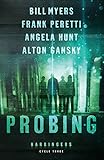


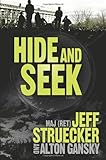

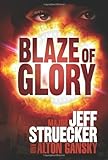

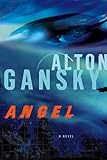
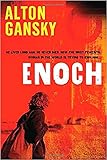


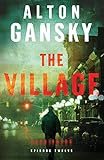
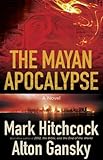
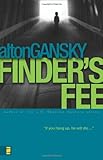
Leave a Reply